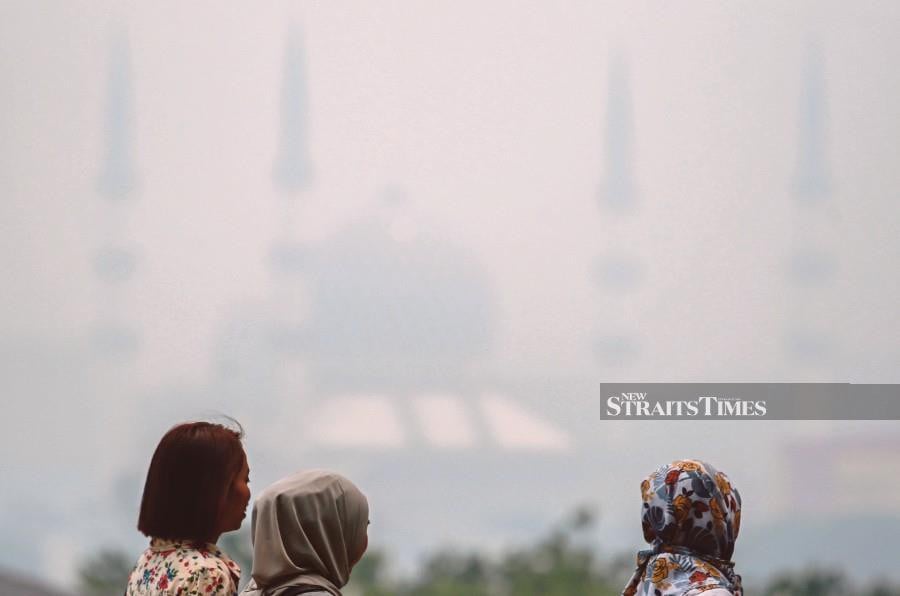RECENTLY, there have been a few polemics and sometimes combative arguments between online preachers on Islamic jurisprudence (fiqh), beliefs (aqidah), etiquette (adab) and even on the interpretation of the plethora of hadith (sayings of Prophet Muhammad).
These polemics are exhausting and confusing. They confuse the public because many of the discourses that went viral on YouTube were not as educational as they should be.
The preachers clashed over religious issues that should have been reconciled by contemporary jurists (ulama).
It can be quite entertaining to watch one ustaz berate, sometime with sarcasm, another ustaz's opinions.
But, these exchanges are counterproductive.
Instead of enlightening the public, these preachers castigate their contemporaries by bombarding us with polemics that have led to more confusion among the ummah.
Worse, these preachers have sown discord between their followers and those of their rivals. It's disheartening when one side labels the other as "wahabbi" or "syiah".
The problem with followers is that they have become batu api (literally a fire starter, or a person who likes to incite conflict) on the pretext of seeking clarification on a religious issue, by asking their ustaz whether what the other preacher said was in accordance with the Quran and sunnah.
The situation gets out of hand when everybody chimes in, creating an unnecessary cacophony online.
It seems the recent discord is over the different ways of studying. At one end, we have people who went through the traditional sekolah pondok religious institutions, and at the other are those who received their degrees and doctorates from universities which offer the modern and Western-style academic study of Islam.
It's understandable why some Muslims view the modern/Western academic study of Islam with suspicion, while others look down on traditional study as a bygone relic. The disparity and polarisation between these two institutions of learning are widening.
In countries like Malaysia, Indonesia and Thailand, the traditional study in the pondok or madrasah is the bread and butter of a Muslim's Islamic education.
Rigorous training in memorising the Quran and Arabic language instruction, connecting with fiqh and usul (foundational matters) tradition by studying the mazhab (school of thought), learning orthodox Islamic theology and then moving on to hadith studies have been acknowledged as effective in understanding Islam at a fundamental level.
Some consider a Muslim's understanding of Islam is incomplete unless he has gone through a traditional curriculum.
When the pandemic began, many of us resorted to learning online from home.
Mosques closed for many knowledge-yearning Muslims.
There are many preachers to choose from with just one click. But many people get carried away by the controversy emerging from disputes between these ustaz, rather than learning the essence of the knowledge.
It has become "too much of a good thing" as Shakespeare would put it. The French call it toujours perdrix when something is at play too frequently, that even good things look terrible.
This is what happened with these ustaz and their followers today. It started well and good, but due to a difference of opinion, things turned otherwise.
What Muslims of today are facing is nothing new. Disagreements and differences in opinion on religious matters had occurred even after the passing of Prophet Muhammad.
The difference of opinion called Ikhtilaf occurred among Islamic law experts over time. This is, however, in contrast to the concept of Khilaf or conflict, defined as a difference in opinion that can't be consolidated by jurists on its religious righteousness.
For me, the difference in opinions is a social construction that can improve the general Muslim population's thinking and action. It's a natural phenomenon. It somehow gives us a fresh perspective on how to resolve issues affecting contemporary Muslims.
Indeed, everybody has an opinion on something. Differences in opinion occur due to educational background, level of understanding, family upbringing, society and time that influences a person's thinking.
Sometimes, even the body of knowledge on jurisprudence is understood differently in a community, but let's not get fractious over this.
The writer, a former NST journalist, is a film scriptwriter whose penchant is finding new food haunts






